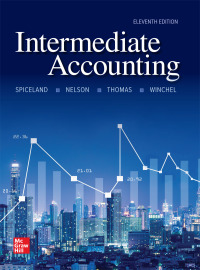A fellow accountant has solicited your opinion regarding the classification of short-term obligations repaid prior to being
Question:
A fellow accountant has solicited your opinion regarding the classification of short-term obligations repaid prior to being replaced by a long-term security. Cheshire Foods, Inc., issued $5,000,000 of short-term commercial paper during 2023 to finance construction of a plant. At September 30, 2024, Cheshire’s fiscal year-end, the company intends to refinance the commercial paper by issuing long-term bonds. However, because Cheshire temporarily has excess cash, in November 2024 it liquidates $2,000,000 of the commercial paper as the paper matures. In December 2024, the company completes a $10,000,000 long-term bond issue. Later during December, it issues its September 30, 2024, financial statements. The proceeds of the long-term bond issue are to be used to replenish $2,000,000 in working capital, to pay $3,000,000 of commercial paper as it matures in January 2025, and to pay $5,000,000 of construction costs expected to be incurred later that year to complete the plant. You initially are hesitant because you don’t recall encountering a situation in which short-term obligations were repaid prior to being replaced by a long-term security. However, you are encouraged by a vague memory that this general topic is covered by GAAP literature you came across when reading an Internet article.
Required:
Access the FASB Accounting Standards Codification at the FASB website (www.fasb.org) and select Basic View for free access. Determine how the $5,000,000 of commercial paper should be classified by citing the specific nine digit Codification citation (XXX-XX-XX-XX) in the FASB Codification. Before doing so, formulate your own opinion on the proper treatment.
Step by Step Answer:






